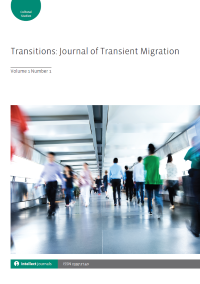The rise of digital labour platform work has drawn researchers to study how migrants are impacted by greater technology dependence in the workforce, and whether platform work might accelerate migrants’ entry into precarious, low-income, contingent work. Emerging data in Canada indicate that that the proportion of gig workers is considerably higher amongst immigrants, especially recent immigrants compared to Canadian-born populations; yet, the demographics and typologies of migrants that choose to undertake platform work have been understudied. This study looks at platform work as part of the wider process of labour market integration of newly arrived migrants in Canada. Acknowledging that labour market integration is a non-linear process that involves several stop-and-go phases, we look at platform work as part of this process and question whether it is a ‘stepping-stone’ or a trap into volatile, precarious work. The study is qualitative and exploratory, based on 24 semi-structured interviews with recent migrants in Canada who have engaged in platform work. Our findings suggest that platform work can serve as a useful first step to gain footing in a new country, as platforms have low barriers of entry, require little social or material capital, and offer flexible forms of employment that can be combined either with studying or looking for another position or with working in a different full-time job. It gives migrants a subjective feeling of control over their lives and security albeit when we delve deeper, they also realize it can be a dead end. The article concludes with some critical reflections on how platform work in the greater gig economy can shape migrant integration in the host country labour market.
Publication Type
- Article



